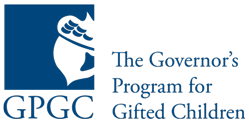Throughout the summer we will be posting weekly reports from the classes. Please let us know if there’s anything else you’d like to see or if you have any questions for specific instructors.
We are also posting regularly on Facebook. You don’t have to join Facebook to see our posts. The link is: https://www.facebook.com/gpgcla/
Freshmen (First Year) Classes:
Freshmen Science (Calvin Runnels, Instructor)
Last week was short, but packed! We kicked it off making batteries out of fruits and veggies, held a moving funeral for those departed servants of science, the plants from our plant experiment that died in the first few weeks, and exploded gummy bears.
Freshman Composition (Reese Menefee, Instructor)
Students began discussing poetry this week! Students were introduced to various forms, such as the persona poem, ode, abecedarian, epistolary poem, and haiku. We discussed lyric vs narrative poetry and students participated in literary analysis, as well as in-class writing activities!
Monday: Introduction to Poetry! Discuss lyric vs narrative poetry. Students read and discussed “Wild Geese” by Mary Oliver.
Tuesday: Students read and discussed “Mirror” by Sylvia Plath and “Love Song of the Demogorgon” by Jenny Molberg. Students wrote persona poems in class.
Tuesday: Students read and discussed “Oranges” by Lauren S Cook, “Ode to the Flute” by Ross Gay, and “Ode to French Fries” by Pablo Neruda. Students wrote odes in class.
Wednesday: Students read and discussed “Hummingbird Abecedarian” by Aimee Nezhukumatathil. Students wrote abecedarians in class.
Thursday: Free Write Friday!!!
Freshmen Humanities (Christine Bertrand, Instructor)
This week we took our first peek at Plato’s tome The Republic. Students read some of the first part of Book II, which considers the question of justice, right vs wrong, and the motivators that drive human behavior. This section includes the story of the ring of Gyges, leading to discussion of the impact of power on choices.
Graduate Classes:
Grad Psychology (Dr. Linda Brannon, Instructor)
The topic for Week four was sleep and dreams.
We began the week with a history of the study of sleep, beginning with the discovery of the sleep cycle, which occurred in the early 1950s. Before that discovery, the assumption was that asleep and awake were the variations, but the discovery revealed five different stages of sleep.
On Tuesday, we talked about the stages, focusing on Rapid Eye Movement (REM) sleep, which was of great interest because it is associated with dreaming. We discussed the physiological process of dreaming and how EEGs allow the study of the stages. I pointed out that the content of dreams is not currently possible to study completely objectively—we have no technology that measures dreaming; that technology measures brain activity.
On Wednesday we explored the controversies over the meaning of dreams, with Freud’s view that dreams are messages from the unconscious and a more modern view that explains dreams as the sleep brain’s attempt to make sense of the activation that accompanies REM. We also covered the effects of sleep deprivation and the case of Randy Gardner, who set the world record for sleep deprivation—264 hours.
On Thursday we had our weekly quiz (good grades this week) and talked about sleep problems, which include phenomena such as “jet lag” and disorders such as insomnia, sleepwalking, narcolepsy, and apnea. I said that many sleep disorders are due to problems in coordinating the changes in brain function that occur in the sleep cycles. However, some are dangerous (such as apnea).
No class on Friday; everyone went home for 4th of July break.
Conflict and Diplomacy (Jessica Markstrom, Instructor)
We ended our discussion of interstate conflict this week. Our last discussion dealt with mediation. We began investigating intrastate conflict (civil war). This included learning about the causes of civil conflict with a special focus on failed states and the likelihood of civil conflict and civil conflict relapse, the resource curse, the challenge of group action, and how economics plays a role both in state success and civil conflict outbreak. Students read from chapters 6 and 12 of Leashing the Dogs of War. The state development activity continued on Friday with 3 of the 4 countries actively engaging in treaties.
Graduate Creative Writing (Reese Menefee, Instructor)
Students continued discussing poetry this week. They were introduced to a variety of forms and pieces. The class read work from Frank O’Hara, Tom Hunley, Wendy Videlock, Aimee Nezhukumatathil, and Jane Wong. Students began writing their two poems and preparing for an in-class poetry workshop. Students shared their poems aloud in class during workshop and received constructive feedback from each other.
Monday: Students listened to a recording of Frank O’Hara reading “Having a Coke With You.” The class discussed the poem, as well as O’Hara’s use of rhythm and structure. Students participated in an in-class writing activity.
Tuesday: Students were introduced to the elegy and the epistolary poem. Students read “Dear Universe” by Wendy Videlock. Students participated in an in-class writing prompt.
Wednesday: Students worked in the library on their poems for workshop.
Thursday: Students read their poems aloud as a group and gave constructive feedback during in-class workshop.

